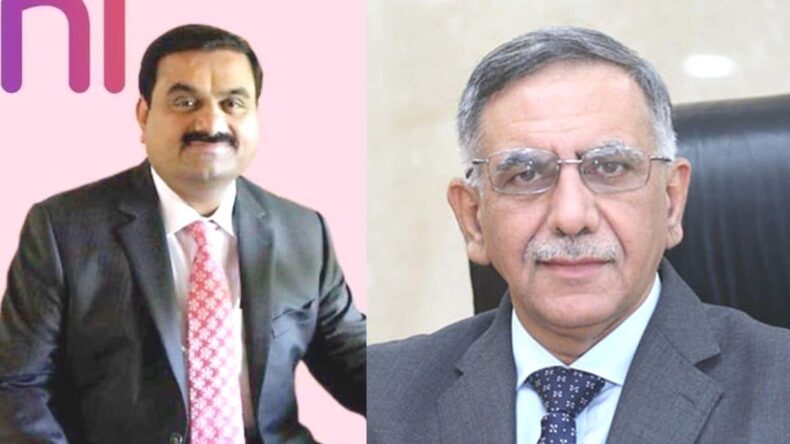
The Adani Group, led by billionaire Gautam Adani, is a conglomerate with interests in various industries including ports, power, mining, and renewable energy.
Mumbai, India – The CEO of Bank of Baroda, Sanjiv Chadha, has expressed his confidence in continuing to lend to the Adani Group, despite growing concerns about environmental and social impact.
The group has been under scrutiny in recent years for its environmental record and alleged human rights violations, particularly in relation to the controversial Carmichael coal mine project in Australia.
Weeks after Adani’s stocks crashed in the stock market, the Bank of Baroda still stands strongly with the conglomerate.
However, Chadha has stated that the Bank of Baroda will continue to lend to the Adani Group, citing the company’s strong financial position and track record of timely repayment.
Chadha, in an interview, stated that the Bank of Baroda has a well-established history with the Adani Group, and has always found them to be a dependable borrower. Chadha emphasized that the bank will evaluate each loan application based on its specific merits and has no intentions to alter its lending policy towards the Adani Group.
Chadha’s comments come from growing pressure from environmental groups and social activists, who have been calling on financial institutions to divest from the Adani Group and other companies with poor environmental and social records.
In recent months, several major international banks, including Standard Chartered, HSBC, and Barclays, have announced plans to cut ties with the Adani Group, citing concerns about its environmental impact and human rights record.
However, Chadha has defended Bank of Baroda’s decision to continue lending to the Adani Group, arguing that it is not the bank’s role to pass judgment on a borrower’s activities’ ethical or moral implications.

“As a bank, our primary concern is to ensure that our loans are repaid on time and in full and that we maintain a healthy balance sheet,” Chadha said. “We cannot take a moral stance on every loan application we receive, and we must always act in the best interests of our shareholders and customers.”
Chadha’s comments have been met with mixed reactions from stakeholders, with some praising the bank’s commitment to financial stability, while others have criticised the decision as a failure to take responsibility for the social and environmental impact of its lending activities.
Vinuta Gopal, the Executive Director of Greenpeace India, expressed her disappointment with Bank of Baroda’s choice to maintain its lending relationship with the Adani Group. Gopal emphasized that banks have a moral obligation to ensure that their lending practices do not contribute to environmental harm or human rights violations. She believes that the Bank’s decision to continue financing the Adani Group goes against this responsibility.
Despite the criticism, Chadha remains firm in his belief that Bank of Baroda’s lending policy towards the Adani Group is sound, and that the bank is well-positioned to manage any risks associated with its loans.
Chadha stated that the Bank has a strong risk management system in place and that it continuously monitors the performance of its loan portfolio. He expressed confidence that the bank’s lending to the Adani Group aligns with its risk tolerance and its commitment to responsible banking.
The controversy surrounding the Adani Group and its lending relationships is unlikely to subside anytime soon, with environmental and social activists continuing to apply pressure on financial institutions to divest from companies with poor records on environmental and social responsibility.
As the debate rages on, it remains to be seen whether the Bank of Baroda’s decision to continue lending to the Adani Group will prove to be a prudent business decision or a moral and ethical lapse.












